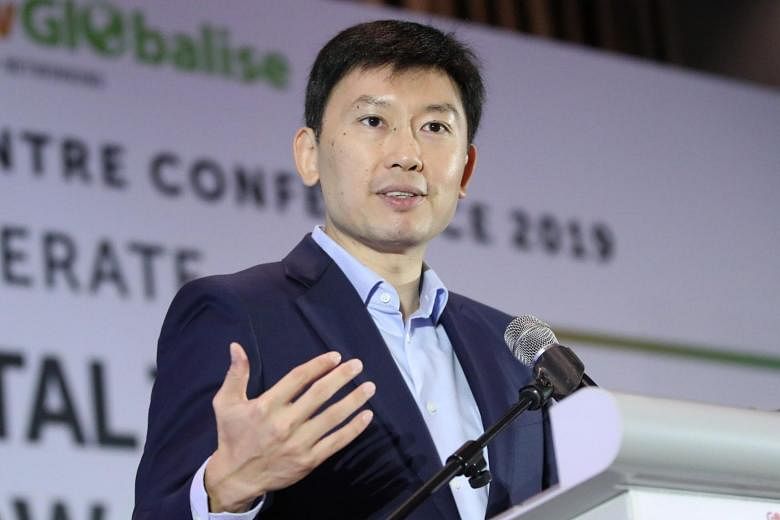BEIJING • The key to upholding the current rules-based world order is ensuring those rules are kept up-to-date, said Singapore's Senior Minister of State for Trade and Industry and for Education Chee Hong Tat at a discussion in Beijing on the future of free trade in the Asia-Pacific.
The unequal distribution of the fruits of globalisation and the resulting inequality are reasons for the growing backlash against free trade, he added.
This is why Singapore has co-convened and strongly supports an ongoing effort to update global trading rules at the World Trade Organisation (WTO), said Mr Chee, who is on a five-day visit to the Chinese cities of Beijing and Shandong.
He was referring to negotiations on the WTO Joint Statement Initiative on E-Commerce which Singapore launched in 2017 together with Australia and Japan.
The initiative received a boost in January when 76 WTO members said they intended to begin negotiations on e-commerce when they met on the sidelines of the World Economic Forum in Davos.
Discussions are still at an early stage, but represent a significant step in updating international trade rules as both China and the United States are signatories to the initiative.
"Singapore hopes that major economies such as the US and China can help make the WTO and our existing rules-based international system work better for the global community," said Mr Chee.
New rules will improve a WTO system that was created mainly to address trade in goods, when trade in services, the digital economy and intellectual property has grown in significance, he said. They can also address the perception that free trade inevitably causes winners and losers, he said.
"It is critical to help countries better address their domestic concerns and perceptions, so that their people will continue to see free trade and integration with the global economy as win-win rather than win-lose," he said.
"Our perception of wins and losses shapes our attitudes towards one another - whether we view them as a partner or a competitor - and consequently our relationships with them."
For instance, China enjoys a huge trade surplus with the US in terms of goods traded, but the US actually has a growing surplus when it comes to trade in services with China, said Mr Chee.
Asked how Singapore intends to build support for the WTO overhaul, Mr Chee said it begins with convincing the majority of the global community that changes are necessary, but they will be made after consultations and with measures that address their concerns.
Many countries already see that they can derive benefits from new rules, he said. China, for instance, last month said its fast-growing digital economy was worth 31.3 trillion yuan (S$6.3 trillion) last year, accounting for over a third of its gross domestic product.
Mr Chee said he was hopeful the oft-delayed Regional Comprehensive Economic Partnership trade deal could be concluded this year.
The 16-nation trade agreement brings together the 10 Asean economies, as well as Japan, South Korea, Australia, New Zealand, China and India.
But its conclusion has been hindered by India's unwillingness to give way on tariffs.
Mr Chee said talks are taking longer than expected because some member countries are having elections this year, but when these are over they would hopefully refocus their attention on the negotiations.


